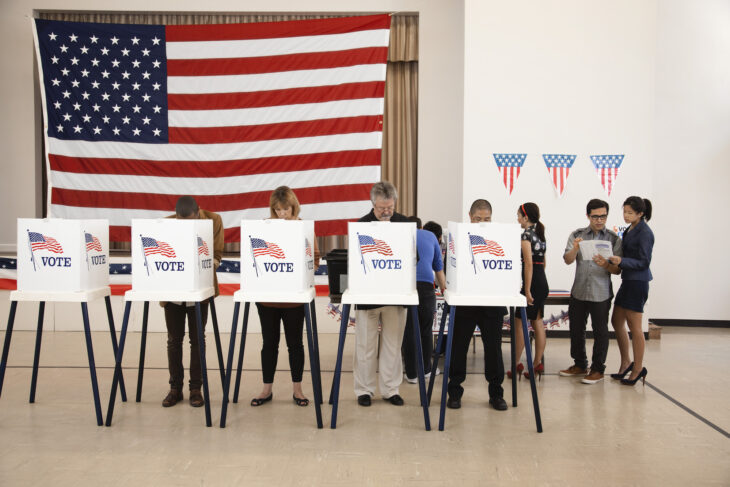
In any debate or discussion it is wise, first off, for those so engaged, to be on the same page in terms of terminology and context. How many times has it been seen in fledgling romantic relationships — ones that were destined for the jagged rocks of disappointment, despair and shipwreck — when the communications of lovers went crosswise to each other because one party spoke of “love” and of “commitment” under the assumption that the other understood and was on the “same page”? We see the results of such tragic assumptions in all aspects of life.
During the revolutionary period of the American experience, Patrick Henry, one of this nation’s famous patriots and a founding father, closed an impassioned speech which he delivered on March 23, 1775 with the following words: “Is life so dear, or peace so sweet, as to be purchased at the price of chains and slavery? Forbid it, Almighty God! I know not what course others may take; but as for me, give me liberty or give me death!” Such a plea could be uttered by anyone and anywhere fighting for the cause of freedom. But, what did Henry mean?
When Henry said, “liberty” did he mean it the way Toussaint Louverture of Haiti meant it when he fought against the tyranny of and the existential threat that France posed to his people? Was his understanding the same as that of Paul Bogle and of George William Gordon of Jamaica when they embarked upon a course for freedom which only led to their hangings by the British? Was his idea that of Harriette Tubman, Fredrick Douglass, Sojourner Truth, Martin Luther King Jr and Malcolm X of this country? What of Gandhi, of Lumumba and of Mandela?
When the above figures from world history called for “liberty” it was because their very “flesh and blood” existences were being oppressed and threatened by death. What was happening to their peoples was closer aligned to the denotative ideas of the word “existential”, and bordered on complete degradation and annihilation if action was not taken to mitigate their suffering and nullify such threats. But, ironically, when Patrick Henry and the other founding fathers railed and clamoured for “liberty” they were talking about the threat to their “pocket books”.
When others spoke of the horrors of kidnapping, of slavery, of other forms of oppression, of rape, of murder and of poverty, the American colonists — up in arms against the British monarch and his Parliament — by “liberty” meant money and material wealth. Hence, a saying which became popular during the revolution, which adds context to the piercing words of Henry was this: “”No taxation without representation!” Such words lit the match which resulted in a conflagration that — through war and disease — consumed the lives of many.
In order to secure their bank accounts, especially those of the landed classes and the other elites of society, such “liberty” was bought and paid for with an estimated 6,800 Americans killedin action, 6,100 wounded, and upwards of 20,000 who were taken prisoner by the British. Historians believe that at least an additional 17,000 succumbed to disease, including about 8,000 to 12,000 who died while being held as prisoners of war. For which cause? For “cash”! For “money”! For “mammon”! Remember the “Boston Tea Party”? That is what it was all about!
This same play on words as “liberty” and “freedom” continues today — with one set of Americans nodding their heads in approval upon hearing them uttered by others not realizing that they were not thinking nor alluding to the same ideas behind them. This has been so, especially, since the advent of Franklin Delano Roosevelt’s “New Deal” after the Great Depression. The “captains of industry” felt that the president’s attempts at giving the working man a “fair shake” went too far and hurt not only the power that they once enjoyed but their – “bottom line.”
The book, The Road To Serfdom, by Friedrich A. Hayek, who received the Presidential Medal of Freedom from President George H.W. Bush in 1991, is a case in point. It is a work in the field of economics praised by the so called political conservatives in America. It represents part of the backlash against and the plan for the dismantling of all that Roosevelt had achieved, including the social safety nets put in place for the working man and for the most vulnerable in society. It is the platform upon which Reagan, the Bushes and Trump campaigned to varying degrees.
But, this piece was not intended to deal with the “wrongness” or the “rightness” of political conservatism or liberalism, it is geared towards a reminder of the importance of an understanding and usage of words. Someone wrote: “Words are free. It’s how you use them that may cost you.” That is a reality for some who were arrested after the insurrection of January 6th, and who now face criminal charges and the possibility of decades in prison. Many knew what they meant by “liberty” and by “freedom”, but some have, just now, come to realize, that they were duped. Oh, for clarity! Give us enlightenment or give us death!



